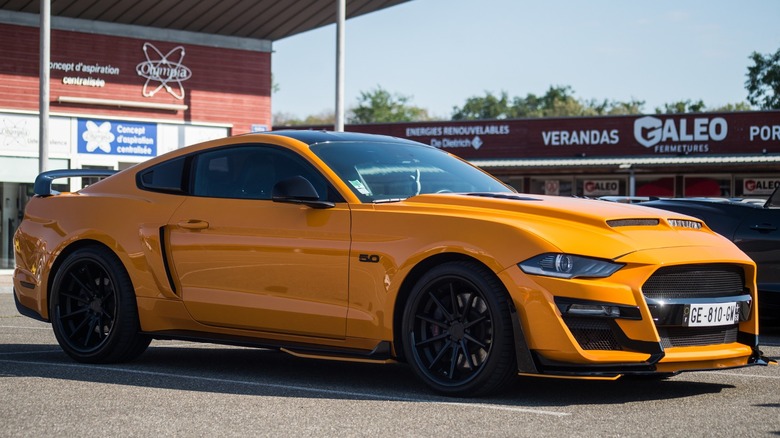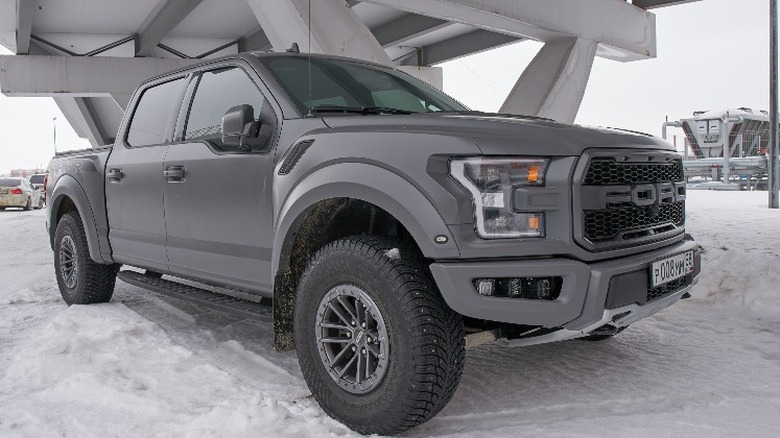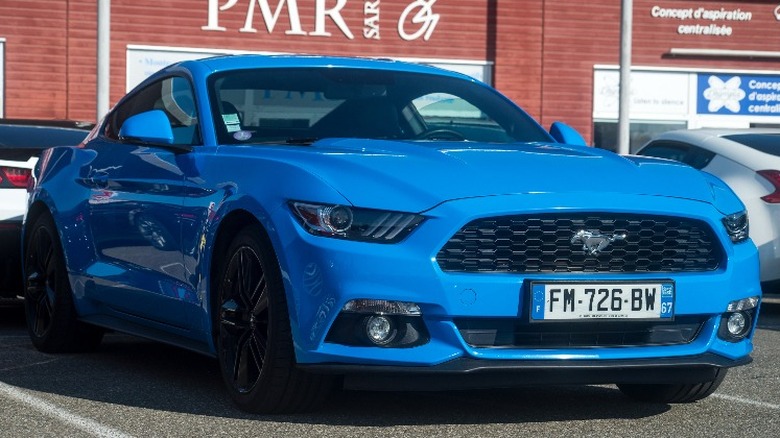The Best And Worst Years For Ford's Coyote Engine
Since its mass-market debut in 2011, the Ford Coyote engine has become one of the best V8s ever made. The motor is beloved for its power, innovation, upgrade potential, and reliability. The Coyote V8 drove the most powerful sixth- and seventh-generation Mustangs, several models of F-150, and proved so popular among custom car builders that an entire category of builds has been named for it – Coyote swapping.
But while the Coyote engine is generally considered highly reliable and long-lasting, it's not without its issues, and some model years are regarded as more sound than others. When it comes to the best and worst years, most experts agree that newer is generally better. That's not always the case, though, as many enthusiasts consider the second-generation Coyote F-150s to be superior, while others believe the third-generation Coyote engines to be the best overall. In terms of the worst years, the Coyote engine is unique in that it has always been a relatively reliable and solid machine. However, Ford fans and experts largely agree that you should avoid the older years and hunt for a newer model if you're looking for the best Coyote engine.
The best years
The general consensus is that newer Coyote engines are more desirable. But while the fourth-generation Coyote motor — available in the 2024 Mustang GT — certainly looks promising, it's too early to say whether it will join the list of the famous engine's best years.
Instead, experts and enthusiasts tend to agree that the third-generation Coyote motor is best. Ford built the third-generation Coyote engine between 2018 and 2023. The third-gen motor, built between 2018 and 2023, produced 460 horsepower and 420 pound-feet of torque. It also saw substantial upgrades from its predecessors, particularly direct fuel injection to deliver more power at higher RPMs. Ford also left the older port injection in place as a supplementary system, increasing efficiency and reliability.
Some truck enthusiasts consider the second-generation F-150 variant to be the best. For the F-150, Ford re-engineered the Coyote motor to produce more low-end torque, sacrificing a bit of sheer power for a substantial increase in towing capabilities. The second-gen Coyote engine found in the F-150s is beloved by fans for its reliability, solid construction, and robust towing abilities.
The worst years
The Ford Coyote engine is an incredibly solid machine and is not known for having many serious flaws or fail points. That said, no plant is perfect, and enthusiasts tend to suggest buyers avoid first-generation Coyote motors if possible. The first-generation Coyote motors were built between 2011 and 2014, and while they're not necessarily bad, they do lack upgrades and improvements that made later Coyotes so successful.
The second-generation Coyote, beloved though it is by F-150 fans, does have one notable recurring issue: oil leaks due to faulty head gaskets.Engine block sealer can provide a short-term fix, but for a full solution, you'll likely have to replace the head gasket, which is labor-intensive and sometimes pricey.
Overall, the 5.0L Coyote engine is robust and reliable; even the worst years are relatively solid. But if you want to get your hands on the best and most durable of all the Coyote iterations, your best bet is to search for a third-gen motor produced between 2018 and 2023.


